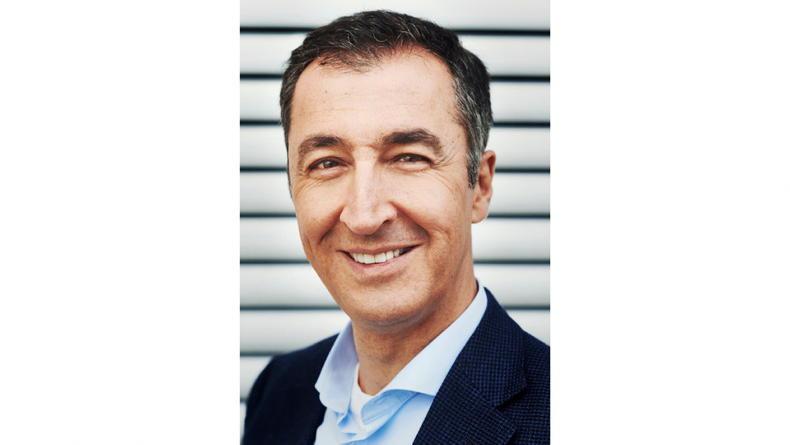Any Mercosur trade deal must contribute to climate protection and food security, Germany’s agriculture minister Cem Özdemir has insisted.
However, the German minister expressed optimism that a trade agreement could be finalised this year with the new Brazilian government.
Speaking at a German-Brazilian economic forum in Belo Horizonte recently, Özdemir stressed that environmental sustainability must form a key element of any future trade agreement between Brazil and Brussels.
Trade relations
“Our trade relations should contribute to climate protection and food security,” Özdemir insisted.

Germany's minister for food and agriculture Cem Özdemir.
“I see sustainability and climate protection as an opportunity, as a motor for innovation, and that is why sustainability and climate protection must always be taken into account as a central principle of action,” he told the meeting, which was organised by the Brazilian National Confederation of Industry and the Federation of German Industries.
“The consequences of global warming and the loss of biodiversity are increasingly becoming an existential challenge for agriculture and forestry, and thus also for the nutrition of all of us,” the German minister claimed.
“Global agricultural and food systems are responsible for up to 80% of the global decline in biological diversity,” he maintained.
Drafts
Özdemir pointed out that drafts of the proposed Mercosur agreement contained important guarantees on the protection and preservation of existing forest areas, which he said made any potential trade deal saleable to Europe.
The recent Brazilian election victory of left-wing candidate Lula da Silva - and the fall of former president Jair Bolsonaro - has reignited the Mercosur talks process, with mounting speculation that a trade deal could be agreed this summer.
“I am optimistic that we will soon be able to do this [trade deal] because I see a mutual interest in such an agreement,” Özdemir said.
“Because with the change of government, sustainability is finally back on the Brazilian agenda. And that's really good news in these difficult times,” he added.
A number of European leaders have visited Brazil since the re-election of da Silva, as the momentum towards agreeing a trade deal has built.
European political opposition to such an agreement has been assuaged following Brazil’s appointment of respected Amazon activist Marina Silva to the post of environment minister.
In addition, Brussels has created its own rules to ban imports that contribute to deforestation.
Even EU climate chief Frans Timmermans conceded recently that a deal could be done with Brazil by July if deforestation in the Amazon was halted.
However, farmer groups are likely to oppose any trade agreement that allows greater access to European markets for South American beef.
Any Mercosur trade deal must contribute to climate protection and food security, Germany’s agriculture minister Cem Özdemir has insisted.
However, the German minister expressed optimism that a trade agreement could be finalised this year with the new Brazilian government.
Speaking at a German-Brazilian economic forum in Belo Horizonte recently, Özdemir stressed that environmental sustainability must form a key element of any future trade agreement between Brazil and Brussels.
Trade relations
“Our trade relations should contribute to climate protection and food security,” Özdemir insisted.

Germany's minister for food and agriculture Cem Özdemir.
“I see sustainability and climate protection as an opportunity, as a motor for innovation, and that is why sustainability and climate protection must always be taken into account as a central principle of action,” he told the meeting, which was organised by the Brazilian National Confederation of Industry and the Federation of German Industries.
“The consequences of global warming and the loss of biodiversity are increasingly becoming an existential challenge for agriculture and forestry, and thus also for the nutrition of all of us,” the German minister claimed.
“Global agricultural and food systems are responsible for up to 80% of the global decline in biological diversity,” he maintained.
Drafts
Özdemir pointed out that drafts of the proposed Mercosur agreement contained important guarantees on the protection and preservation of existing forest areas, which he said made any potential trade deal saleable to Europe.
The recent Brazilian election victory of left-wing candidate Lula da Silva - and the fall of former president Jair Bolsonaro - has reignited the Mercosur talks process, with mounting speculation that a trade deal could be agreed this summer.
“I am optimistic that we will soon be able to do this [trade deal] because I see a mutual interest in such an agreement,” Özdemir said.
“Because with the change of government, sustainability is finally back on the Brazilian agenda. And that's really good news in these difficult times,” he added.
A number of European leaders have visited Brazil since the re-election of da Silva, as the momentum towards agreeing a trade deal has built.
European political opposition to such an agreement has been assuaged following Brazil’s appointment of respected Amazon activist Marina Silva to the post of environment minister.
In addition, Brussels has created its own rules to ban imports that contribute to deforestation.
Even EU climate chief Frans Timmermans conceded recently that a deal could be done with Brazil by July if deforestation in the Amazon was halted.
However, farmer groups are likely to oppose any trade agreement that allows greater access to European markets for South American beef.










SHARING OPTIONS